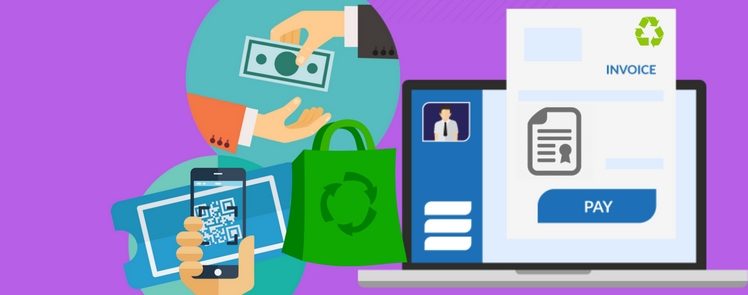
11 must-have items to include on a scrap plastic invoice
A common saying in football is “block and tackle,” as in, “do the basics right, and the rest will follow.” Some of the most important things that happen in a football game are the mundane, repetitive details that most casual observers don’t notice – the dozens of basic blocks and tackles that lead to bigger successes on the field.
In the plastic scrap trade, it’s often these mundane “block and tackle” details that can lead to bigger opportunities for plastic scrap buyers and sellers. One of the basic (but highly important) details in every plastic scrap trade is the invoice.
Every scrap plastic transaction is an exercise in clarifying expectations. If both parties to a deal know what to expect, the deal will go more smoothly and both sides will be satisfied with the results.
In every scrap plastic transaction, the scrap plastic buyer needs to issue an official scrap plastic Purchase Order (PO) with clear language spelling out what is being bought, how it needs to be delivered, and what the conditions and special circumstances might be.
Here at BlackBridge Investments, once we receive the PO from our customer that has all of the information requested, we then provide the customer an invoice and non-circumvention agreement.
The invoice and non-circumvention agreement serve a few basic purposes:
- Clarify details related to the scrap plastic order, including relevant identifying information.
- Remind both parties to the transaction of their rights and responsibilities. For example, a standard non-circumvention agreement ensures that both sides of the trade will not reveal their sources or suppliers to the competitors of trading partners. A non-circumvention agreement helps protect the unique supplier relationships that are at the heart of every plastic scrap trader’s business.
Here are the 11 “must-haves” for a scrap plastic invoice:
- Bill To: (Customer Name) – This must be the customer’s verified and legal name and address.
- Date of Invoice
- Invoice Number: Each invoice needs to have a unique, non-repeated invoice number that cannot have been used previously.
- Item: this is the product code or internal classification.
- Material Description: Give as specific of a description as possible, and include photos or any other tangible reference that can clarify the expected quality of the product.
- Quantity: This is the weight of the truck, as determined by the Heavy Weight – Light Weight = Net Weight (Quantity)
- Rate: Price of scrap plastic material per pound.
- Amount: Total amount per item.
- PO Number: It is important to include the original Purchase Order (PO) number from the customer’s order so we can easily track and reference the specific order. A best practice is to not submit an invoice until the customer has submitted a PO. However, there might be circumstances where the customer needs to receive a pro forma invoice initially until the final scrap plastic material weights are determined. For example, depending on the deal, sometimes we require a customer to pay a 50% deposit and we can’t submit a final invoice because the order has not shipped and we do not yet know the final weight. So in this situation, we ship a pro forma invoice based on the industry standard 40,000 lbs and then adjust it on the final invoice.
- Terms: There’s a saying about business negotiations: “deals don’t get done based on price, they get done based on terms.” Every invoice should clearly spell out the terms of payment so that both parties understand expectations. If there is a 50% deposit, if payment is due upon shipment or upon delivery, or if a preferred customer is being granted more favorable payment terms, this needs to be clarified on the invoice.
- Shipment ID: This is a special number for internal use, and we add it to our invoices so we can keep track of which invoice correlates with which shipment.
By paying attention to the small details such as knowing which items to include on a plastic scrap invoice, your firm can avoid bigger challenges, delays and costs down the road. Just the simple “block and tackle” steps of spelling out the details of each invoice in a clear, standardized way will help every scrap plastic trade “move the chains” downfield toward your ultimate goal.




